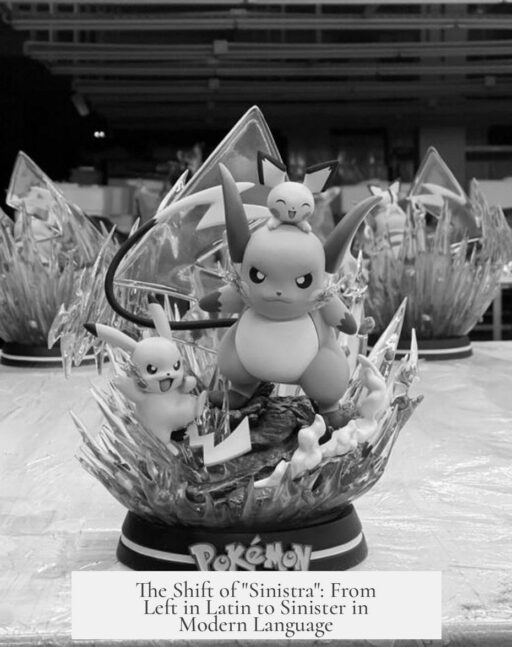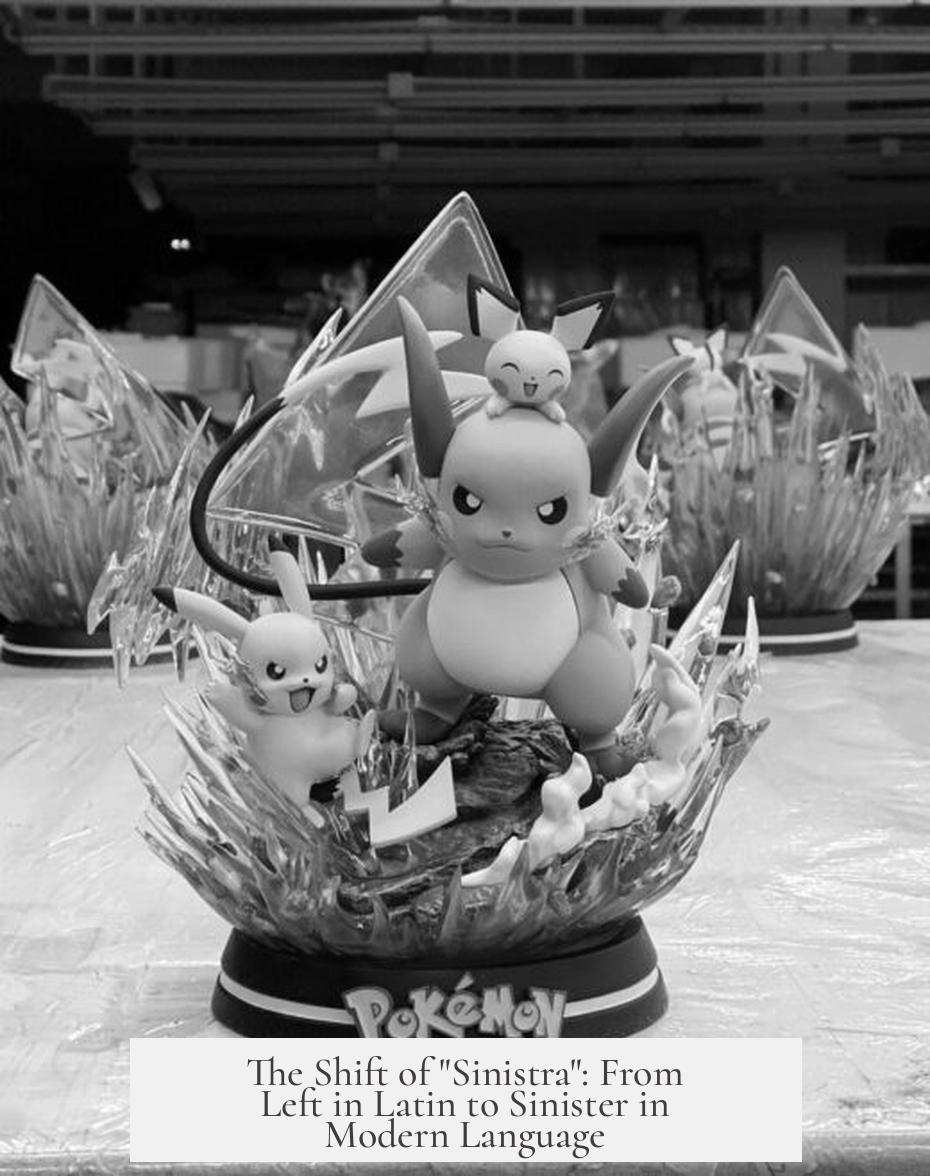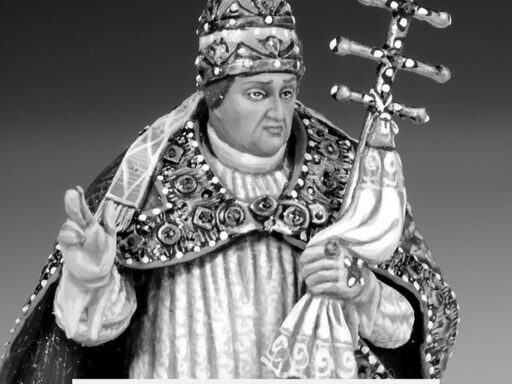The Latin word “sinistra,” originally meaning the feminine form of “left,” evolves to signify sinister or evil through cultural and literary shifts rooted in ancient symbolism.
“Sinistra” is not the basic Latin term for left but the feminine nominative singular of “sinister,” which means “left.” The key lies in the symbolic meanings attached to directions in Roman and Greek traditions, especially in augury—the practice of interpreting omens from the flight of birds.
Roman augurs faced south during divination. This orientation placed the eastern sky on their left, considered the favored and propitious side. Conversely, Greek augurs faced north, making the right side lucky and the left unfavorable. This difference influenced how the left side was perceived culturally.
Over time, Latin literature reflects this shift. Poets of the Augustan age, influenced by Greek meter and style, began to use “sinister” in a negative sense. Catullus and other predecessors employed “sinister” to mean unfavorable or unlucky, diverging from earlier uses that sometimes saw the left side as positive or neutral. This poetic usage spread from verse into prose, notably replacing the once more positive connotation seen in Cicero’s Silver Latin period writings.
Thus, the transition from a simple directional term to a word implying evil or misfortune results from a fusion of symbolic practices and literary borrowing. The negative notion of “left” as “sinister” grew stronger due to Greek influence and Roman poetic expression.
- “Sinistra” originally just indicated “left,” the feminine form of “sinister.”
- Roman and Greek augury assigned different luck values to directions—Roman left was lucky; Greek left was unlucky.
- Augustan poets borrowed Greek negative symbolism, applying “sinister” to mean unfavorable or evil.
- The negative meaning spread from poetry to everyday Latin prose.
How Did “Sinistra,” Originally the Latin Word for “Left,” Come to Mean Sinister or Evil?

“Sinistra” originally just meant “left” in Latin, but it evolved into meaning “sinister” or “evil” through a fascinating twist of cultural, linguistic, and literary influences. This isn’t just a random leap; it’s a tale rooted in ancient superstitions, language shifts, and poetic innovations. Let’s unravel how this simple direction became loaded with negative meaning.
First, it’s essential to clarify a common misconception. Sinistra is not the standalone Latin word for “left.” It’s the feminine nominative singular form of the adjective sinister, which translates to “left.” So, to the Romans, “sinister” was simply “left” — nothing evil about it. But here’s where history and culture step in.
Roman Vs. Greek Augury: Left and Right in the Ancient World
Augury — the ancient practice of interpreting omens, especially the behavior of birds — was crucial in Roman and Greek cultures alike. But they looked at directions quite differently.
- Roman augurs faced south. From that viewpoint, the eastern sky was on their left. Conveniently, this eastern side was considered fortunate.
- Greek augurs faced north. Thus, for them, the lucky side was on the right.
This difference matters a lot, even if it sounds technical. In Rome, the left side wasn’t unlucky; oddly enough, it was somewhat favorable. However, the powerful sway of Greek culture and its directional symbolism started influencing Roman thought, especially as Latin writers absorbed Greek forms and philosophies.
The Poetic Shift: Language in Motion

Enter the Augustan poets, the literary rockstars of the Roman Empire—like Catullus and others who cherished Greek verse styles. These poets began tweaking the word sinister to mean “unfavorable” or “ill-omened.” It was a stylistic, almost rebellious, choice to borrow Greek symbolic meanings where the “left” side was unlucky.
Before this shift, sinister was neutral or even positive. For example, the statesman Cicero used it in a neutral or favorable way in his prose. But as poetry with Greek influence spread, the new meaning trickled into everyday language and prose in the Silver Latin period — roughly the 1st and 2nd centuries AD.
In short, poetry transformed a simple directional adjective into a word loaded with bad vibes.
From “Left” to “Evil”: Cultural and Linguistic Confluence
The story of sinister’s transformation is one of cultural confluence. The Romans admired Greek culture deeply, adopting much from it. As Greek superstitions about direction seeped into Latin arts and language, “left” started carrying an ominous tone. This evolved further over centuries till “sinister” announced something evil, cursed, or unlucky — a far cry from its literal meaning.
It’s fascinating how something as mundane as left or right can embody deep social beliefs and fears across cultures. Ever wondered why “right” often means “correct,” and “left” is suspicious? This is the root of that intuition.
What Does This Mean for Us Today?

Language is a living beast. Words carry histories within them that we rarely see. Today, “sinister” is firmly an English synonym for “evil” or “threatening,” yet it quietly whispers about ancient sky-watchers and cultural exchanges.
For those learning linguistics or history, this case is a tasty appetizer. It shows how linguistic and cultural practices shape meanings. And for writers or speakers, knowing the background can enrich usage, avoid clichés, and spark curiosity in your audience.
Practical Takeaways and Fun Facts
- If you’re reading Latin texts, remember sinistra just means “left” — no judgment implied.
- When you use “sinister” today, you’re tapping into layers of historical superstition and poetic flair.
- Different cultures have unique spatial biases. What the Romans thought was lucky on the left, the Greeks saw as unlucky on the right.
- Augustan poetry was a game-changer even for language meaning — art influences culture more than we often credit.
Isn’t it funny? A simple direction can carry centuries of meaning changes. So next time you hear “sinister,” you’ll know the shadow it casts started from ancient bird watchers, poets, and cultural mixers.
Could “Right” Have Become “Evil” Instead?
Imagine if Roman augurs faced north, and the Greeks faced south—would “dexter,” the Latin for “right,” have become sinister? It prompts us to rethink how arbitrary some cultural symbols are. Direction is just a physical fact, but humans make stories about it.
Language reflects culture, and culture reflects human mentality. Understanding one opens doors to understanding the other better. So, did you ever think etymology could be this intriguing?
Next time you hear “sinister,” thank some ancient Roman bird watchers—and poets—for the spooky twist.




